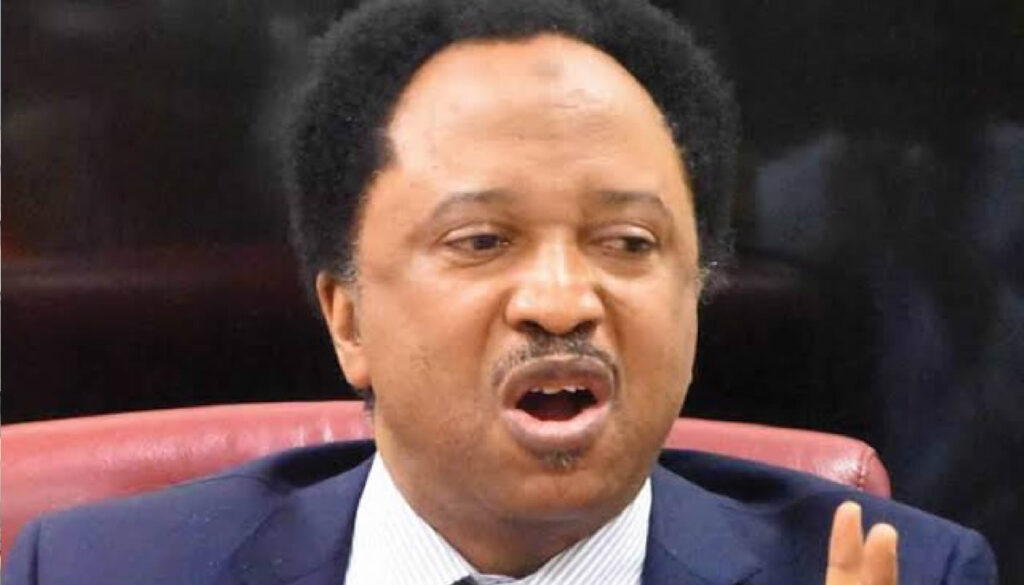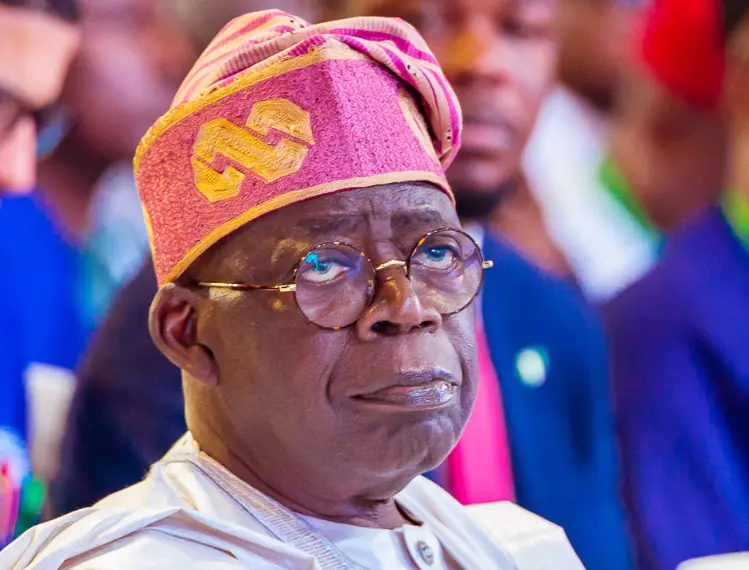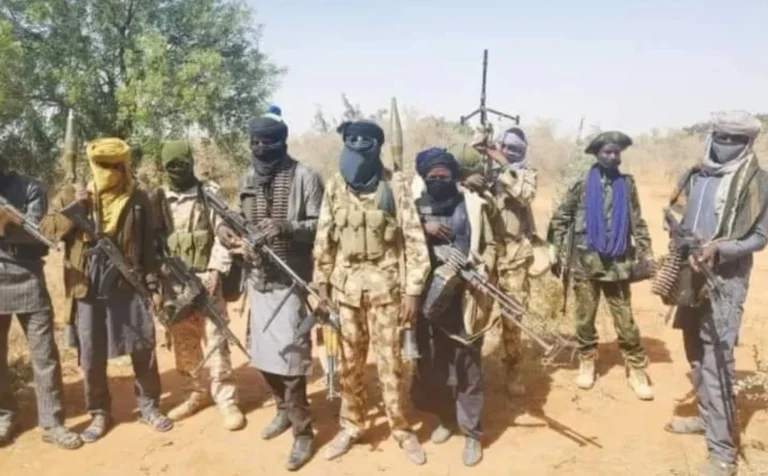
Former Kaduna Central senator in the Fourth Republic, Shehu Sani, speaks with ISMAEEL UTHMAN on the aftermath of former President Muhammadu Buhari’s death, the political mood in the North, and the permutations ahead of the 2027 general election
What lessons should Nigerian leaders draw from former President Muhammadu Buhari’s death, particularly from the comments that greeted his passing?
This is the first time in the history of Nigeria that we are witnessing emotional responses to the death of a president or former president of such magnitude. In the past, we had the killing of Gen. Murtala Muhammed, the deaths of Shehu Shagari, Gen. Sani Abacha, and President Umar Musa Yar’Adua. But never has the death of a former president generated so much empathy and anger in equal proportion as we have seen with the death of President Muhammadu Buhari.
One thing is very clear: we now have a new generation of Nigerians, particularly the Gen-Z, who are unrestrained in their anger, emotions, reactions, and bitterness towards the political establishment.
Going by the kind of posts on social media and the videos in circulation, it clearly shows that Nigerian leaders will have to live and die with the consequences of their records in office. If you look at Nigerians’ reactions to Buhari’s death, you will see that never in the history of Nigeria have we had a president who was so equally loved and hated like Buhari. When Yar’Adua died, the overwhelming reactions were those of sympathy, love, and support. Even where he was wrong, the blame was placed on the cabal that existed at that time.
But in Buhari’s case, you have, on one hand, people praising and eulogising him to high heavens, and on the other hand, people insulting and cursing him. So, Nigerian leaders should learn from these reactions. They should know that people will hold them accountable, not just when they are out of office, but even when they are out of this world.
Who do you think will inherit Buhari’s cult following in the North?
Since the death of Malam Aminu Kano, there has never been a northern political figure who excited the interest of the common people, built a reliable and dependable relationship, and mobilised such fanatical loyalty like Buhari. But in the end, he had to pay the price for that kind of fanatical loyalty—because fanatical loyalty comes with extreme expectations, and if you fail to meet those expectations, you should know that there is a price to pay as a leader.
I don’t think there will be anyone who will be so loved to the point that common people were contributing money for him to run for office and were even paying with their lives, like after Buhari.
If you remember, Buhari started his presidential bid in 2003, and in 2011, when he lost the election, thousands of people lost their lives. His supporters attacked members and sympathisers of the Peoples Democratic Party. Even in Kaduna, dozens were killed, many were imprisoned, and many sacrificed their lives for Buhari.
The anger that followed his death came directly from those who had dedicated and sacrificed their lives for him, but whose expectations were ultimately not met. So, if you are a political leader and have such diehard supporters, just know that you are likely to pay the price. In the North today, there is no one the common people are willing to spend money on or sacrifice their lives for. That is why, since Buhari left office, they have not been keen on rallying behind any politician in northern Nigeria again. Since Aminu Kano, nobody has commanded that kind of mass following and devotion like Buhari.
Nobody will inherit Buhari’s followers because no one would want to be stoned if they fail. No one would want to be cursed or mobbed if they fail. As for Buhari’s followers, they have also learnt their lesson: they will not do for any other northern politician what they did for Buhari, because they did it, and many of them—millions—were not satisfied with the outcome after Buhari spent eight years in power.
Are you saying Buhari failed his followers?
Buhari raised their hopes so high and made them believe he had a magical solution to Nigeria’s problems. They believed he had the magic wand—until he took over power. You could see that he once said it is not easy to govern Nigeria. That showed that he either underestimated the country’s problems or overestimated his own capacity to solve them.
Buhari, as an individual, was a man of honesty and integrity, but leadership needs more than just the honesty and integrity of one person. It requires ideas, vision, and tools. From the very first day Buhari took office as president and publicly declared his assets—while none of his close associates dared to do so—I knew he was going to work with the wrong team.
While he was a man of integrity who had no house in Abuja, looting was going on left, right, and centre around him. The people Buhari worked with did not share his ideology, vision, or philosophy of life. Buhari had no property, companies, or billions of naira. He was relatively honest.
I think the only person who was more honest than him in northern Nigeria was Balarabe Musa, along with the likes of Adamu Ciroma, who were even poorer than Buhari. I know this because Buhari had a house in Daura and two in Kaduna, and his children are doing okay. But you could never say that about Balarabe Musa, who didn’t have a 24-hour generator in his house and was going to the farm until the last day of his tenure. He only had a house in Kaduna. But he didn’t have the kind of following Buhari had.
Buhari operated as an honest man but was surrounded by dishonest people whose ideas, vision, and approach to governance were in direct opposition to his. Buhari could have succeeded if he had surrounded himself with honest people. But he ended up being an honest man in a sea of dishonesty.
If nobody is going to inherit Buhari’s followers, will that not affect President Bola Tinubu in the 2027 presidential election?
Buhari’s support is different from the kind of support politicians have in the North today. Buhari’s support was a kind of cult following. When Buhari was a presidential candidate, any other northerner vying for that position was seen as a devil. When Buhari was the President, anyone who criticised him was seen as anti-North or anti-Buhari. At the peak of his popularity, Buhari became like a deity, and criticising him was viewed by the common people as a form of blasphemy. For that reason, he presided over the affairs of the state without the North standing up for what was right and necessary for the region.
In 2027, people are going to vote based on a number of factors, one of which is the direction of their local political leaders. They are also going to vote based on the situation in the country and on verifiable results of governance as far as the administration is concerned.
I am of the firm belief that President Tinubu will win the 2027 election because I have not seen any credible, strong, and viable opposition that can counter his support base in northern Nigeria. The major issue that has affected his popularity is the withdrawal of the petroleum subsidy. But the point is that people are not asking the question: where did the money go? The money is in the states where the projects are ongoing. So, it is ironic for people to praise governors for implementing projects but condemn the president for withdrawing the subsidy. It is the same money that couldn’t be accessed under the subsidy regime that is now being used for the construction of roads and schools in the states.
Is that the only reason?
Another thing is that there are forces in the opposition that have been whipping up sentiments against Tinubu in the North. These forces are not doing it out of patriotism or in the interest of the masses. They are simply using the tool of ethnicity and sectionalism to instigate regional opposition against Tinubu, and they are doing it in a way that paints them in a bad light. For example, they are whipping up the sentiment that Tinubu has been appointing more Yorubas to office and that he has marginalised northerners in terms of infrastructure and other benefits. But they forget that Buhari appointed northerners to all the key security agencies, and they did not perform. All the key ministries under Buhari were headed by northerners, but they failed to create security.
Right now, Tinubu has also appointed northerners to key positions. If you look at it, you will realise that the facts do not support the sentiment being spread against him. I do not want to sound pro-Tinubu or pro-government, but the facts are very clear: northerners were in power for eight years under Buhari, and they failed to address the problems of the region.
The country is better able to respect the principle of rotation of power. That’s why this ADC (African Democratic Congress) group is virtually going nowhere, in the sense that the political equation as it stands now is that a southerner must be allowed to complete the eight-year tenure so that power can shift to the North in 2031.
What informed your assertion about the ADC?
These are the political equations on the ground: the man with the organic following in the ADC is Peter Obi, but he cannot defeat Atiku in a primary election. Those who vote in primary elections are not common people; they are delegates, and Obi doesn’t have the reach or strength to win primaries against Atiku. If Obi doesn’t emerge as the presidential candidate, his fanatical followers will not be as impressed as they were in 2023. That is one advantage for Tinubu.
Secondly, if Atiku stands as the candidate, there is a possibility of the South rallying together with parts of the North to return Tinubu. And if you give Obi the ticket to contest the presidency, most people in the North will set aside their differences and re-elect Tinubu. I’m talking about the reality on the ground, and that may not necessarily reflect my personal view.
Obi cannot emerge as the ADC presidential candidate except by the grace of God, and only if Atiku withdraws from the race. Winning primary elections is about delegate control. If 80% of Obi’s supporters are from the South, and he can be assured of all the delegates there, what about the delegates from the 19 northern states?
Former governor of Rivers State, Rotimi Amaechi, is also among them. If the three of them go into a primary, I can predict that Atiku will get the highest number of votes, followed by Amaechi. But in the general election, Obi may end up getting the highest number of votes.
PUNCH.




